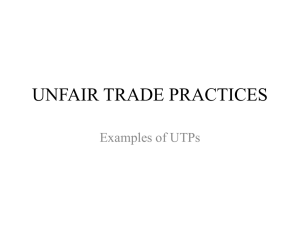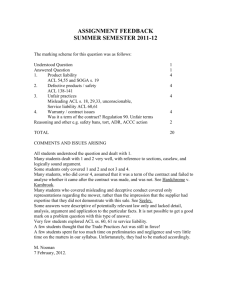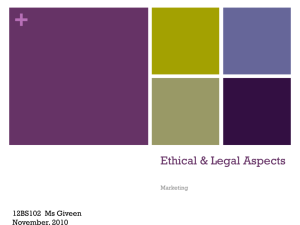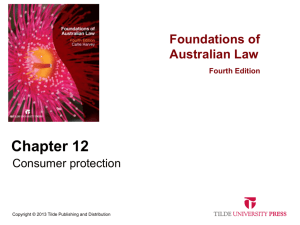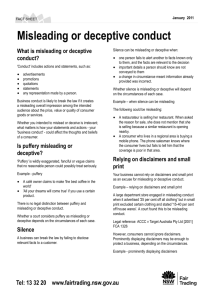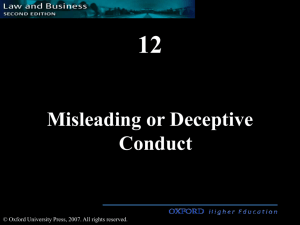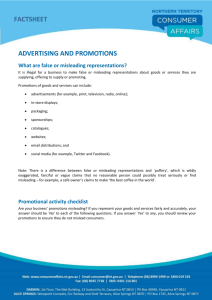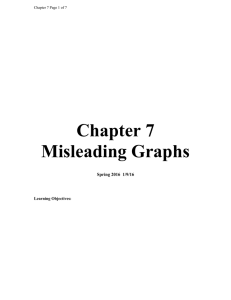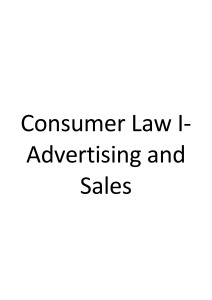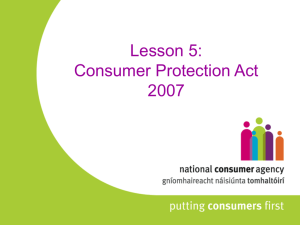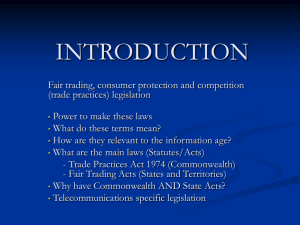misleading & unconscionable conduct
advertisement
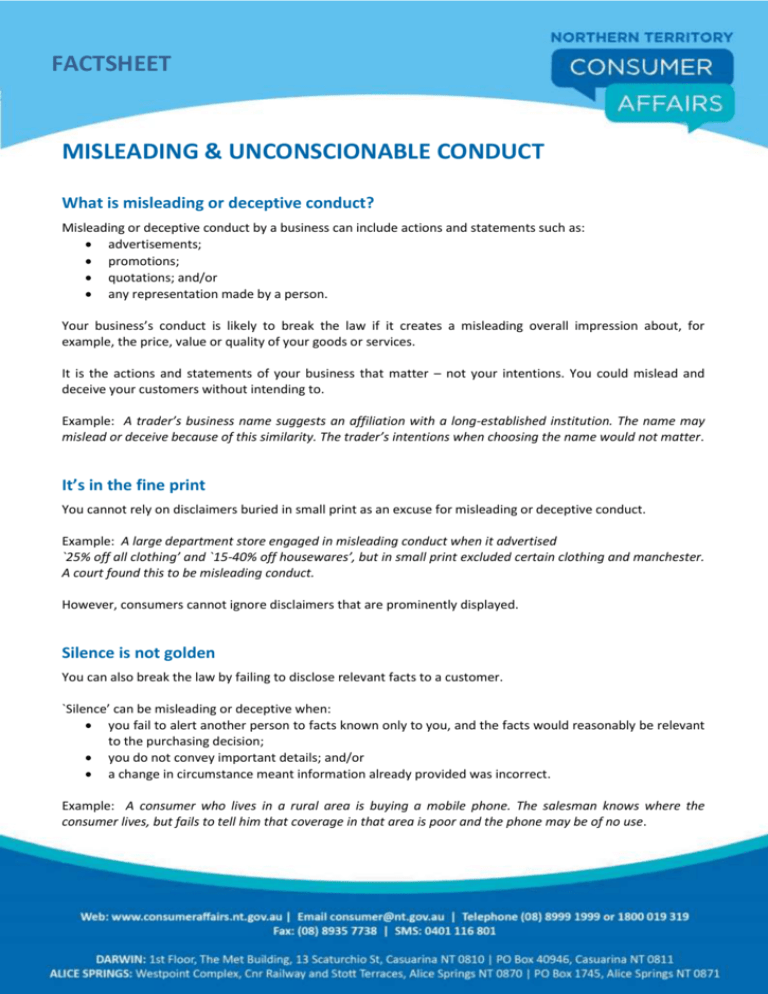
FACTSHEET MISLEADING & UNCONSCIONABLE CONDUCT What is misleading or deceptive conduct? Misleading or deceptive conduct by a business can include actions and statements such as: advertisements; promotions; quotations; and/or any representation made by a person. Your business’s conduct is likely to break the law if it creates a misleading overall impression about, for example, the price, value or quality of your goods or services. It is the actions and statements of your business that matter – not your intentions. You could mislead and deceive your customers without intending to. Example: A trader’s business name suggests an affiliation with a long-established institution. The name may mislead or deceive because of this similarity. The trader’s intentions when choosing the name would not matter. It’s in the fine print You cannot rely on disclaimers buried in small print as an excuse for misleading or deceptive conduct. Example: A large department store engaged in misleading conduct when it advertised `25% off all clothing’ and `15-40% off housewares’, but in small print excluded certain clothing and manchester. A court found this to be misleading conduct. However, consumers cannot ignore disclaimers that are prominently displayed. Silence is not golden You can also break the law by failing to disclose relevant facts to a customer. `Silence’ can be misleading or deceptive when: you fail to alert another person to facts known only to you, and the facts would reasonably be relevant to the purchasing decision; you do not convey important details; and/or a change in circumstance meant information already provided was incorrect. Example: A consumer who lives in a rural area is buying a mobile phone. The salesman knows where the consumer lives, but fails to tell him that coverage in that area is poor and the phone may be of no use. What is unconscionable conduct? Generally, unconscionable conduct is a statement or action so unreasonable it defies good conscience. You must not act unconscionably when: selling or supplying goods and services to a customer; or supplying or acquiring goods and services to or from a small business. Examples of unconscionable conduct can, depending on the circumstances, include: not properly explaining the conditions of a contract to someone you know does not speak English or has a learning disability; not allowing enough time to read an agreement, ask questions or get advice; using a friend or relative of the customer to influence their decision; making the customer sign a blank or one-sided contract; taking advantage of a low-income customer by making false statements about the real cost of a loan; failing to disclose key contractual terms; or using high-pressure tactics, such as refusing to take ‘no’ for an answer. When is it wrong for me to accept payment? You must not accept payment for goods or services if you: do not intend to supply them; intend to supply materially different goods or services; or know (or should have known) you would not be able to supply them in a timely manner. Example: A landscaper contracts to provide brick-red paving stones and accepts payment, knowing that only grey stones are available at the time of the agreement, and that it will be difficult to get brick-red ones. Referral selling is illegal Referral selling is when you: persuade a consumer to buy your goods or services by promising a rebate, commission or other benefit for supplying information that helps you sell to other consumers; or only give the consumer the promised benefit if another event happens after the agreement is made – for example, other ‘referred’ consumers also have to buy the goods or services from you. It is not referral selling if you promise a benefit for: providing the names of potential customers; or helping you to supply the goods. What is harassment and coercion? Undue harassment means repetitive and unnecessary or excessive contact with someone, to the point where they feel intimidated, tired or demoralised. Coercion involves force (actual or threatened) that restricts someone’s choice or freedom to act. There is no requirement for behaviour to be repetitive in order to amount to coercion. You must not unduly harass or coerce in connection with the: supply or possible supply of goods or services; or payment for goods or services. This applies whether you are the business supplying the goods or services, or collecting debt on behalf of your or another business. For more information on your obligations under the Australian Consumer Law (ACL), refer to: ACL: Sales practices – a guide for business and legal practitioners ACL: Avoiding unfair business practices – a guide for business and legal practitioners.
